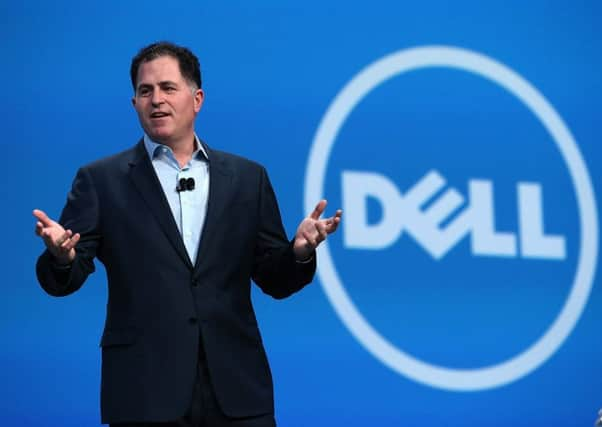Rebooted Dell sees Scotland as key global tech player
This article contains affiliate links. We may earn a small commission on items purchased through this article, but that does not affect our editorial judgement.


The tech tycoon has marked the first anniversary since he pulled off Silicon Valley’s largest ever takeover, involving the acquisition of EMC Corporation for a cool $67 billion (£52bn) in cash-and-stock, with change.
The result is the umbrella multinational Dell Technologies and a combined presence in Scotland of Dell, EMC, and associated divisions including VMWare and SecureWorks, accounting for a workforce running into several hundred highly-skilled tech specialists, and counting.
Advertisement
Hide AdAdvertisement
Hide Ad• READ MORE: Dell to buy data storage firm EMC in $67bn deal
At Dell EMC World 2017, staged at the Valley’s “retreat” Las Vegas, I was told that the expansively-minded technology giant believes it has fostered a “significant presence” in Scotland since establishing a base over a decade ago.
Furthermore, Dell says it has what it describes as a “vested interest” in supporting sustainable economic growth and access to higher-quality jobs here. Its ongoing business transformation programme means that employment offered in Scotland by Dell centres on highly-technical skillsets, but with increasing numbers of employees assuming not only European, Middle East and Africa (EMEA) but global roles.
The digital world is still talking about Dell’s surprise move on enterprise software and data storage market leader EMC. It came after the technology multinational was taken private following a worldwide sales slump during the 2000s in its main core product – namely the custom, built-to-order desktop and laptop personal computer.
Dell had been the planet’s number one PC manufacturer for a solid decade. But it then had to fight off fierce competition and was firstly overtaken by HP and then Lenovo to slip to third-largest PC vendor position with Apple and Acer snapping at Dell’s heels.
Then came the release of Apple’s iPad tablet in 2010, viewed as a game changer that had a highly detrimental impact on all major PC providers. Something had to give, as the market moved towards all things mobile especially when it came to tablets and smartphones.
It supposedly signalled that a “post-PC” era had well and truly arrived and so Dell trod water. Three years later the company instigated a $24.4bn (£19bn) leveraged buyout, delisting its shares from both the Nasdaq and Hong Kong Exchange to take it private – the largest company ever to do so.
Advertisement
Hide AdAdvertisement
Hide AdA thorough restructuring of core and non-core operations was under way and a characteristically upbeat Michael Dell predicted at the time that the transaction would open an exciting new chapter for Dell, its customers and team members. It is a mantra that appears to be proving true.
Dell had plenty of time to run its eye over EMC having actually struck a commercial partnership as far back as the turn of the millennium. Its “timing is everything” philosophy is backed up by four key global factors that will also collectively improve the fortunes of Digital Scotland on the world stage.
Firstly, a Deloitte report claims that despite a lengthy decline in worldwide sales there’s always going to be things for which we need a PC. Its study reveals that even the youngest of millennials – those aged 18 to 24 years – are still relying on desktops and laptops for specific tasks like shopping, banking, watching videos, gaming plus creating text and image files.
Secondly, Microsoft, a close partner to Dell (the software giant is reported to have loaned $2bn (£1.5bn) to Dell at the time of going private) is taking the best of mobile tech, bringing it to the desktop in the form of the Surface Studio 28-inch touch screen plus a lighter version of Windows to directly compete with Google Chromebook.
Thirdly, and not to be outdone, Apple is making its MacBook Pro more customisable to inextricably link mobile and desktop, along with making its iPad Pro more adaptable to desktop as a way of convincing device-hungry folks they need both. Dell’s Precision 5520 represents its latest workstation laptop launched to tackle the MacBook Pro head on.
Fourthly, and perhaps key, is that according to research outfit IDC, the 60-plus million shipments recorded last year represents the PC market’s first year-over-year growth in five years. It appears that things are finally starting to stabilise after years of smartphone and tablet dominance.
Such a move to keep the desktop alive, from affordable PCs to the high-end more specialised marketplace, fits perfectly with Dell’s merger with EMC’s enterprise-level strengths. Meanwhile Dell continues resolutely along the private route, away from the business quarter-to-quarter pressure for results.